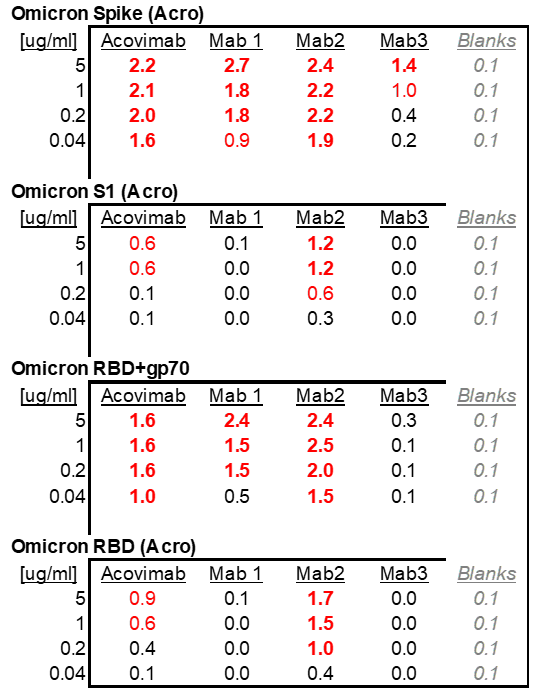
Invention Summary:
The unprecedented outbreak and spread of SARS-CoV-2 has led to rapid development of the COVID-19 pandemic. Since its beginning in 2020, the virus has rapidly evolved due to its spread, causing the generation of novel variants like Omicron more recently. Thus, there is still an unmet need for more specific, reliable, and high throughput assays to fight against this highly infectious pathogen.
Rutgers researchers have developed a serological/ELISA-based test for SARS-CoV-2 with higher sensitivity and high throughput capacity. The team generated a novel fusion antigen (gp70-RBD) consisting of the receptor binding domain (RBD) from the viral spike protein S1 and a stabilizing linker (gp70). When this system is used to generate a fused antigen containing with the RBD sequence from the Omicron variant, the researchers demonstrated preferential recognition of the RBD domain by polyclonal sera from vaccinated or infected individuals and monoclonal antibodies, compared to recognition of commercial antigens without the linker. The ongoing evaluations of this novel assay both with therapeutic antibodies and sera from individuals with known COVID-19 status demonstrate the ability of this novel fusion antigen to effectively identify and quantitate the presence of antibodies against a broad range of SARS-CoV-2 variants.
Market Applications:
- Antibody-based testing for COVID-19
- Potential for evaluating seroconversion from infections and diseases
- Isolation of novel therapeutic antibodies that recognize and protect against new CoV2 variants
Advantages:
- Novel antigen with enhanced immunoreactivity against therapeutic monoclonal antibodies
- Preferential recognition compared to commercial RBD antigens
Intellectual Property & Development Status: Provisional patent application filed, patent pending. Available for licensing and/or research collaboration. Please contact marketingbd@research.rutgers.edu